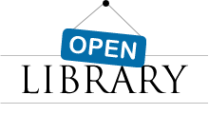FLOSS & Libraries
Libraries are perfect places to implement free and open source solutions. Besides providing flexibility and freedom, open source tools and projects are based on the same principles as libraries and other information institutions – freedom, openness, free and open access, sharing, giving, development, knowledge etc.
Which open source tools exactly can libraries, museums, archives, galleries, documentaion centers and similar organizations use?
- Evergreen – “Evergreen is used by libraries to provide their public catalog interface as well as to manage back-of-house operations such as circulation (checkouts and checkins), acquisition of library materials, and (particularly in the case of Evergreen) sharing resources among groups of libraries.”
- (LibLime)Koha – “LibLime Koha is the most advanced open development ILS available created by librarians for librarians.”
- Greenstone – “Greenstone is a suite of software for building and distributing digital library collections. It provides a new way of organizing information and publishing it on the Internet or on CD-ROM.”
- CORAL – “CORAL is an open source ERMS for libraries. This electronic resource management system is built by the University of Notre Dame’s Hesburgh Libraries. The first module, Licensing, was released as open source software in the summer of 2010 and we have continued releasing new modules since then. It is designed to be both simple and highly customizable – each module can be installed independently or used together depending on your library’s needs.”
- Fedora Commons Repository Software – “Fedora Repository was originally developed by researchers at Cornell University as an architecture for storing, managing, and accessing digital content in the form of digital objects. Fedora defines a set of abstractions for expressing digital objects, asserting relationships among digital objects, and linking “behaviors” (i.e., services) to digital objects. It provides a core repository service (exposed as web-based services with well-defined APIs).”
- DSpace – “DSpace is the software of choice for academic, non-profit, and commercial organizations building open digital repositories. It is free and easy to install “out of the box” and completely customizable to fit the needs of any organization. DSpace preserves and enables easy and open access to all types of digital content including text, images, moving images, mpegs and data sets. And with an ever-growing community of developers, committed to continuously expanding and improving the software, each DSpace installation benefits from the next.”
- Library a la Carte – “The Library à la Carte Content Management System (CMS) enables librarians to easily and quickly create dynamic web pages that integrate Web 2.0 features, such as chat and RSS feeds, with traditional library content, such as catalogs and article databases. Library à la Carte is a free open-source solution for libraries by libraries. “
- Libstats – “Libstats provides a simple way for library reference & service desks to track statistics on the number of questions asked, as well as build a simple knowledge base.”
- Scriblio – “Scriblio has features that support original cataloging, but it can also connect to an ILS or other systems to represent those collections. For the use you describe, it would indeed overlay on top of the existing ILS.”
- reSearcher (CUFTS, GODOT) – “reSearcher is an award-winning integrated suite of open source products for locating and managing electronic information resources, designed for use by students and researchers in academic libraries. The modules of reSearcher include: CUFTS – Open Source Serials Management; GODOT – Open Source Link Resolving; Open Knowledgebase.”
- OpenRoom – “OpenRoom provides a simple online interface for managing and reserving rooms. With OpenRoom, you can setup any number of rooms, group them together, provide information about their contents, and even specify business hours on a room-by-room basis.”
- Libki – “Libki is a cross-platform pc reservation booking and time management system designed to allow time limited access to computers on a network. Libki is ideally suited for use in locations where a controlled computing environment is paramount such as public access systems, libraries, school computer laboratories and more.“
- I mnogi drugi.
To find out more about open source tools and projects available visit oss4lib (Open source systems for libraries) and FOSS4LIB (Free and open source software or libraries).





